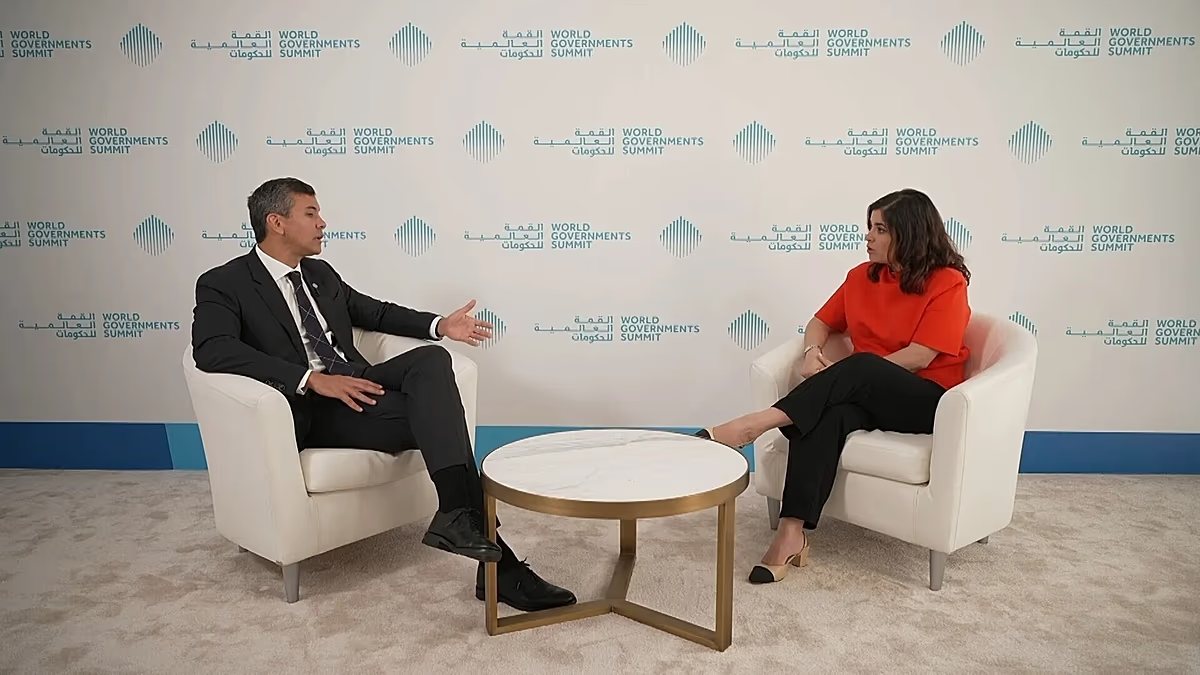Paraguay President tells Euronews ‘Mercosur must be applied without delay’
The free trade agreement between the European Union and Mercosur countries should be implemented without delay, Paraguay’s President Santiago Peña told Euronews. He warned that stalling the agreement would be a “mistake” amid rising geopolitical tensions.
The free trade pact was signed last month by the EU and Mercosur members Brazil, Argentina, Paraguay and Uruguay. However, its full ratification by the EU has been frozen after MEPs referred the agreement to the Court of Justice in Luxembourg.
“We already presented the agreement to the Congress of the Paraguayan Nation last week, and we understand that the European Union has the legal tools to implement it temporarily,” Peña said on Euronews’s flagship interview programme The Europe Conversation.
“We are working to make this happen, and we want Paraguay to be the first country to implement it.” The country currently holds the rotating pro tempore presidency of Mercosur.
Despite the judicial review, the European Commission has the prerogative to provisionally apply the deal once one or more Mercosur countries complete national ratification. While Germany, Spain, Portugal and the Nordics are pushing for the next phase, the Commission currently says no decision has yet been made.
‘Opposition rooted in ignorance’
The agreement would create a vast EU–Latin America free-trade zone, slashing tariffs on goods and services. But resistance in Europe remains fierce, with farmers and several capitals, led by Paris, warning of unfair competition from Mercosur imports.
Peña said that European opposition to the deal was rooted in “ignorance” and an outdated and stereotypical view of Latin America.
“Our countries have changed tremendously. They have developed. Human capital has grown,” Peña said. “Europe has to rediscover Latin America.”
In the interview, Peña warned that rejecting the deal would amount to a strategic blunder, as Europe can no longer rely on the United States as its default trade partner due to President Donald Trump’s unpredictable policies.
“If (MEPs) ultimately prefer not to integrate themselves into (new) markets and instead choose to retain their old alliances that today no longer work, it would certainly be a mistake,” he said.
Still, Peña credited Trump with giving the deal “the final push” after 25 years of talks.
“The world was in a state of drowsiness,” he said. “We weren’t moving, and he came along to move us all. He came to challenge what we thought was stable, and that pushed us to leave our comfort zone.”
According to Peña, one of the EU-Mercosur deal’s key advantages is its potential to counter China’s growing presence in the region and dominance of rare earth supplies.
“Europe is losing an enormous opportunity there, because if there is a region that can compete globally, it is Latin America. We have young talent, a predominantly young population, a population (of people who are) already digital natives,” he said.
“We have that tremendous abundance of natural resources, not only food that grows above the ground, but also minerals that are below the earth, which are so critical to this new technological wave. Our region has absolutely everything that Europe and the world need.”
